There are reminders of José Luis Ruiz Arévalos everywhere in the three-bedroom trailer where his wife and four children live in the small Central Valley city of Los Baños: the family photos along the hallway, the triple bunk bed he built to accommodate a growing family, the fence he installed out front.
'You Always Feel That Someone’s Missing': How a Trump-Era Immigration Policy Has Kept a California Family Apart for Two Years
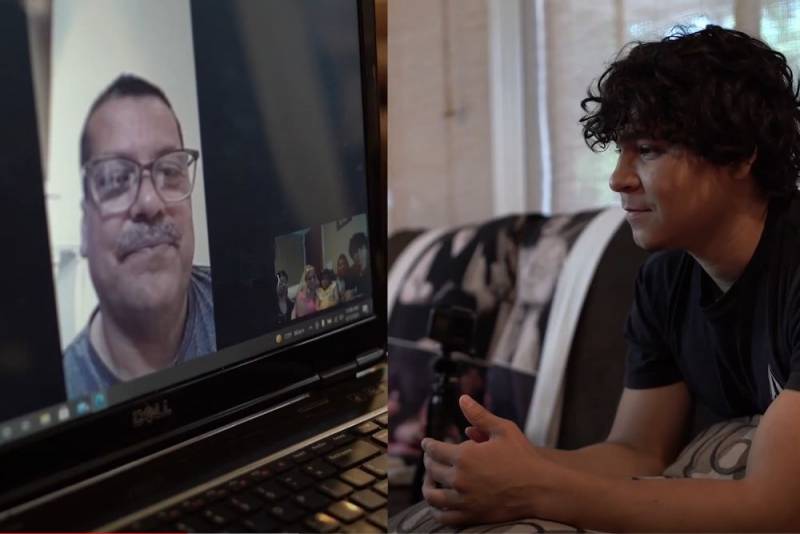
But Ruiz Arévalos isn’t there. After he was forced to stay in Mexico two years ago, the college plans for the three oldest children have unraveled. The oldest dropped out of college and joined the U.S. Army Reserve. The second oldest is prioritizing work while studying. And their younger brother, a senior in high school, caught the eye of Harvard recruiters but instead is considering vocational school closer to home.
“There’s like this space where he used to be, but he’s not there anymore,” said Nathan Gutiérrez Ramírez, 19. “And like, every time you come home, you’re just like, ‘Oh, I feel like something’s missing.’ You always feel that someone’s missing, that he’s missing.”
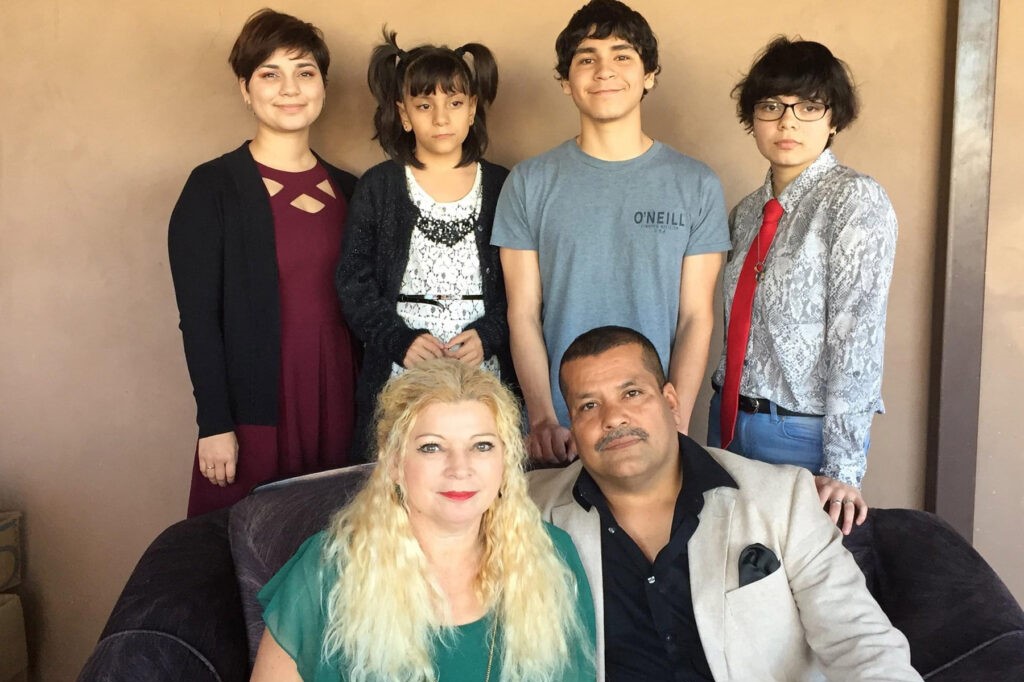
In May 2019, Ruiz Arévalos — also known as José, Dad or Papa, depending on whom you ask — went to Mexico for what he thought would be the final step to apply for his green card: an interview at the U.S. Consulate.
He and his family — the rest of whom all are U.S. citizens — expected he would be able to come back in a week or two.
But he was unexpectedly refused a green card when U.S. Consulate officials decided that under Trump administration guidance he was likely to become a “public charge,” dependent on government services.
Unable to return to the U.S., he remains in Hermosillo, Sonora, a thousand miles from his family, while he tries to appeal the decision.
Former President Donald Trump’s changes to the “public charge” immigration policy made headlines the year of Ruiz Arévalos’s green card interview in 2019. What was less publicized is that in January 2018, the Trump administration had already made changes to the public charge policy at consulates outside the country.
The changes gave consulate officers more discretion to scrutinize applicants’ age, education, job skills, and health insurance and whether they or their family members received any type of public benefits.
Between Oct. 1, 2018, and Sept. 30, 2019, consulate officials refused almost 21,000 people applying for immigrant visas based on the revised public charge policy. That was seven times as many people as had been refused under the same policy two years before.
The changes that were made have now been reversed under President Joe Biden. But the effects still remain, not only for immigrants, but also for their spouses and children. When Ruiz Arévalos couldn’t return home, it triggered economic hardship and emotional grief for his wife and children.
It also disrupted the education of his oldest stepchild, Elena Gutiérrez Ramírez.
Elena, 21, dropped out of the University of California, Merced so she could work to support the family. The decision was gut-wrenching and scary. Elena thought she might never return to college.
Ruiz Arévalos had been helping her pay for her college expenses not covered by financial aid with his income as a handyperson. Without his help, not only could she not afford to stay in school, but she also needed to help the rest of her family.
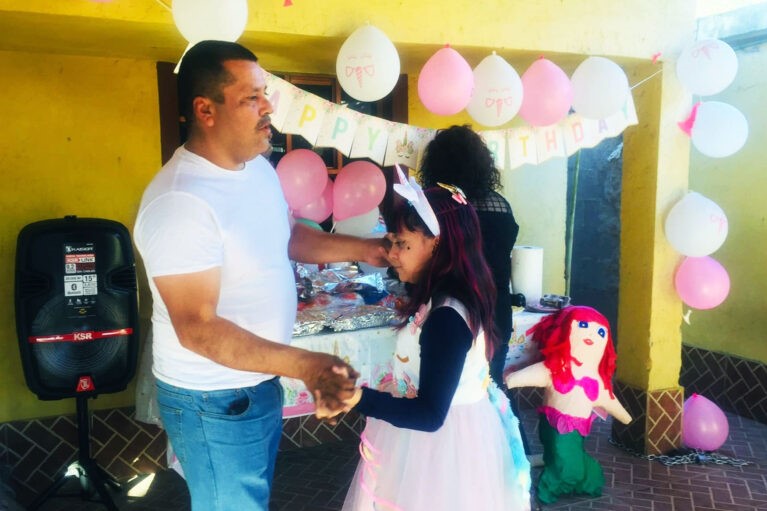
Her mother, Armanda Ruiz, has a full-time job taking care of her little sister, Priscila Ruiz Ramírez, 11, who was born prematurely and has had four surgeries and multiple health issues her entire life.
Priscila has developmental delays and is under continuous medical care with speech, occupational and physical therapy. Her other two siblings, Ignacio and Nathan, were still in high school at the time Ruiz Arévalos was told he could not return from Mexico. Nathan had been struggling with severe depression. Elena felt she had no other choice but to drop out.
“Counselors usually advised me to, like, try to stay in school, but they didn’t really understand that I was the only one that was able to work,” Elena said.
There was one other thing motivating her decision: If she stayed in college, she reasoned, the burden to support the family would fall on her younger siblings. She wanted them to follow their dreams.
The oldest three have always excelled in school. Nathan, 19, got A’s and B’s at Merced College last year. Ignacio, 17, just finished his junior year at Los Baños High School with a 4.6 grade point average — all A’s, including four in Advanced Placement classes. He recently received a letter from Harvard, encouraging him to apply.
“Right now I just want to provide for my family and keep ourselves from sinking into debt,” Elena said. “With my dad out of the country and with no family but ourselves, I don’t want the lack of money to be the reason why my siblings don’t go where they want to go and get their degree in what they want.”
So Elena applied for dozens of jobs. She worked at a tomato-packing plant, at Big 5 Sporting Goods as a cashier, and with the U.S. Census Bureau for the 2020 census.
Then the coronavirus pandemic hit California, and work became even harder to find. Determined to continue toward a college degree, she began taking classes at Merced College. As the months dragged on and the family continued to struggle financially, she became increasingly worried.
In Mexico, Ruiz Arévalos felt that his world had broken into a million pieces. He has been part of this blended family for 12 years. When he first met his wife, Armanda Ramírez, her name before she married him, her daughter Elena was 8. Nathan was 6, and Ignacio was 5. The children have their father’s last name and their mother’s maiden name: Gutiérrez Ramírez. Later the couple had Priscila together.
When he talks about his children, his voice becomes soft with love as he recalls each of their personalities. Little Priscila is his treasure, his spoiled baby. Elena is loving and noble, he said, a “super daughter.” Nathan is both tough and affectionate. Ignacio, he said, could do anything he wants — studying comes easily to him.
“And the worst thing is that my kids really put their heart into their studies,” he said in Spanish. “I feel like I am clipping their wings.”
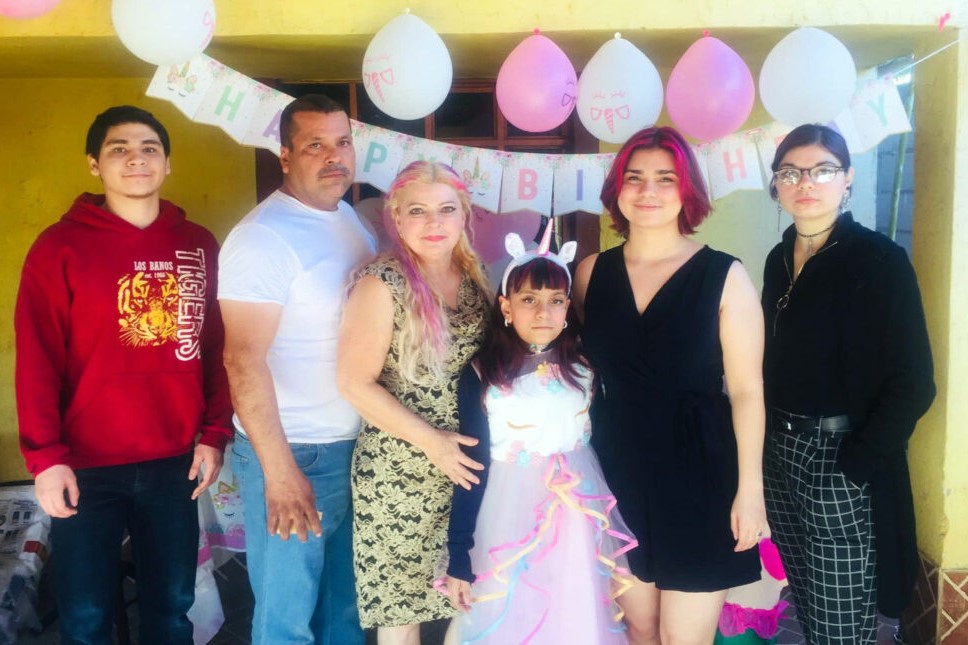
Ruiz Arévalos had been living in the U.S. without immigration papers since his parents brought him in the early ’90s, when he was 17. Since 1996, immigration law makes it difficult for anyone who crossed the border illegally and stayed in the U.S. for more than a year to get a green card, even if they are married to a U.S. citizen. They have to leave the country to apply, and if they lived here without immigration papers, they are banned from reentering the country for 10 years.
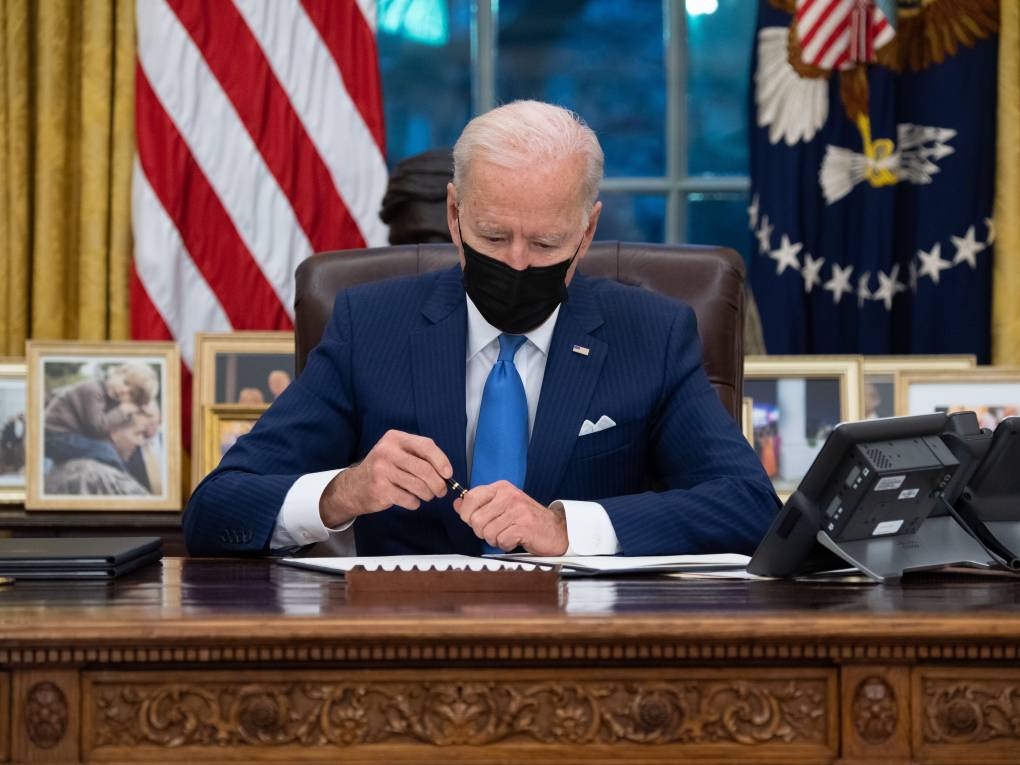
There is one way around the 10-year ban: You can apply for a waiver if you can prove that being forced to stay outside the U.S. would cause “extreme hardship” for a U.S. citizen spouse or parent.
Before going to his interview appointment in Ciudad Juárez, Ruiz Arévalos applied for a waiver, arguing that his absence would cause severe hardship for his wife. In the documents they submitted, they detailed how hard it would be for her to be left alone to care for their four children, including Priscila, with her medical issues and developmental delays, and Nathan, with severe depression and panic attacks.
U.S. Citizenship and Immigration Services approved the waiver. The couple believed they had all their paperwork in order. They secured a fiscal sponsor — a family friend who agreed to support Ruiz Arévalos and his family. The sponsor made far more than the minimum income required by federal regulations, which is 125% of the federal poverty level.
But when Ruiz Arévalos showed up for his appointment, the consulate official questioned whether his fiscal sponsor would actually support the family if needed and asked Ruiz Arévalos whether his family had used welfare. Priscila has received Supplemental Security Income — provided to disabled people in lower-income families — since she was born.
The other children in the family had received food stamps. The consulate told him he would need an additional fiscal sponsor to prove he wouldn’t become dependent on the government.
But instead of waiting for him to turn in the new paperwork, the consulate told him he was inadmissible to the U.S. because he was likely to become a public charge, and canceled his waiver of the 10-year ban.
The U.S. State Department declined to say how many other applicants for green cards had their waivers revoked because of the new public charge policy that was in place from 2018 to 2020. U.S. Citizenship and Immigration Services said the data was not available.
Erin Quinn, senior staff attorney at the Immigrant Legal Resource Center, said likely thousands of the people denied entry under “public charge” in 2018 and 2019 had previously lived in the U.S. and had waivers to show that being separated from their families would cause extreme hardship, like Ruiz Arévalos.
“After that guidance came out, officers had clearly gotten marching orders to go on this fishing expedition, as a way to begin denying cases that were otherwise clearly eligible for their permanent resident status,” Quinn said. “They can overcome the public charge issue by turning in the information requested, but the damage was already done, because the real harm for families like this one is those years of separation that can’t be undone.”
Ruiz Arévalos submitted the names of three different fiscal sponsors to the consulate. But the process slowed almost to a halt because of the pandemic. While he waited, he tried his best to stay connected to his family across the border. They do regular video calls so the kids can talk with their dad. Ignacio even calls Ruiz Arévalos for help when he has to fix something at home — how to change the oil in the car, how to unclog the toilet, how to fix the fence.
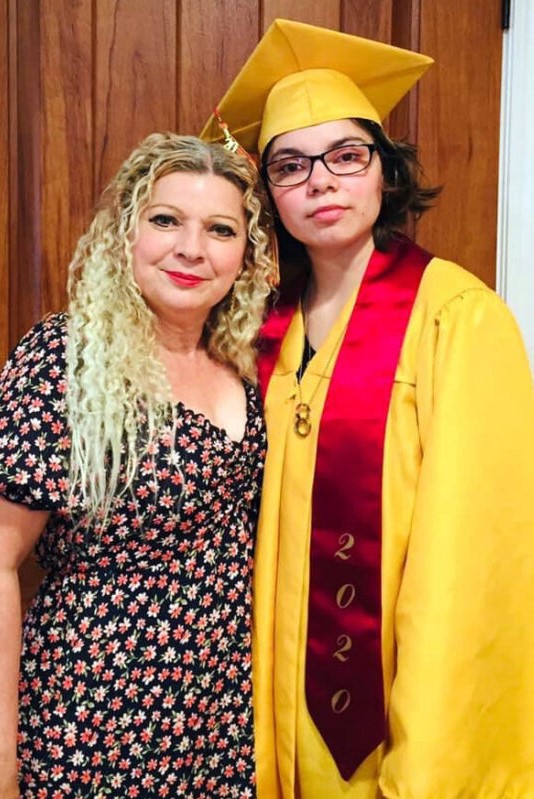
A few months before Ruiz Arévalos went to Mexico, the Gutiérrez Ramírez kids’ biological father died. They didn’t have much contact with him the last few years he was alive, but when they found out he died, it was painful.
“I had a dad, and I didn’t get along very well with him. We had problems. Then I get another dad, and they take him away,” Nathan told Ruiz Arévalos recently. “It’s not fair. I want my dad.”
“It hit us all very hard that he wasn’t able to come back,” Ruiz said. She said Priscila especially didn’t understand why her dad was in Mexico. “Why is my dad over there?” Ruiz said she would ask. “Why doesn’t he come here? Why doesn’t he sleep here with us?”
Ruiz Arévalos wasn’t there to see Nathan’s graduation from high school, or Priscila’s ceremony for “reclassification” to show she is no longer considered an English-language learner at school.
He’s missed two years of birthdays and movie watching and countless dance sessions in the family living room. He wasn’t there to see them all stuff eggshells with confetti for Easter, or to watch how they made distance learning work, with all five of them learning from home — Elena and Nathan in college classes, Ignacio in high school, Priscila in special education, and their mother taking an English class.
“Sometimes it feels different not having a father figure,” Ignacio said. “’Cause you know, there’s a different kind of relationship with your dad than your mother, I’d say, if you’re a guy, ’cause like, you know, guys just understand each other. Like you don’t even have to say something, you already know.”
A few months ago, Elena met with a college counselor and decided to join the Army Reserve. She went to basic training in July and will be there until November, so she won’t be able to attend college classes in the fall. She’s hoping she can return to college in the spring.
“During this time of uncertainty, at least the Army will bring some form of certainty,” Elena said. “In addition, if something were to happen to my mom, I will be the one taking care of my siblings, and without a stable job, I can’t guarantee that. That’s why the Army sounds like a good deal.”
There may finally be some hope in Ruiz Arévalos’s case. In July 2020, a U.S. District Court in New York issued a temporary injunction requiring consulates to stop using the new guidance on public charge.
And most recently in August, the Department of Homeland Security began the process to ask the public how the public charge rule should be changed in the future, specifically mentioning it does not want the rule to “unduly impose barriers” on people seeking adjustment of status, like Ruiz Arévalos.
This summer, Ruiz Arévalos received another letter in the mail from the consulate in Ciudad Juárez, the first in months. For the first time, there was no mention of “public charge.” The letter said he could now apply again for a waiver. The process could take months.
In June, Ruiz and the kids went to visit Ruiz Arévalos in Mexico, the last family trip before Elena headed to basic training.
They went to the beach — a first for some of the children — and waded into the ocean, playing in the waves. From the sand, Ruiz watched and took a video with her phone — her husband, with her children, walking toward the horizon. They jumped over wave after wave coming at them. For the moment, they were all together.
